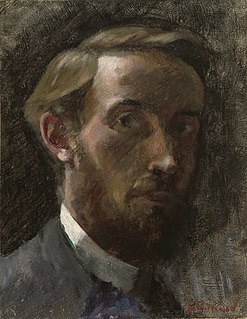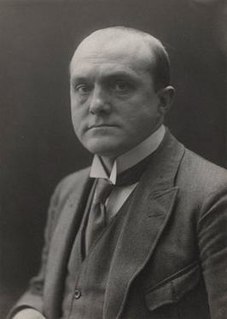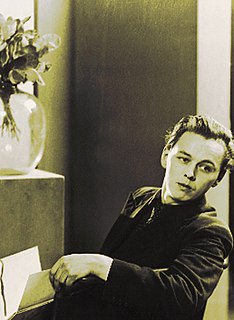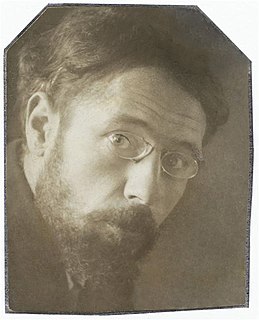A Quote by Walter J. Phillips
Colour is as variable and evanescent in the form of pigment as in visible nature.
Related Quotes
Grey. It makes no statement whatever; it evokes neither feelings nor associations: it is really neither visible nor invisible. Its inconspicuousness gives it the capacity to mediate, to make visible, in a positively illusionistic way, like a photograph. It has the capacity that no other colour has, to make 'nothing' visible.
The prejudice many photographers have against colour photography comes from not thinking of colour as form. You can say things with colour that can't be said in black and white... Those who say that colour will eventually replace black and white are talking nonsense. The two do not compete with each other. They are different means to different ends.
Colour, as the strange and magnificent expression of the inscrutable spectrum of Eternity, is beautiful and important to me as a painter; I use it to enrich the canvas and to probe more deeply into the object. Colour also decided, to a certain extent, my spiritual outlook, but it is subordinated to life, and above all, to the treatment of form. Too much emphasis on colour at the expense of form and space would make a double manifestation of itself on the canvas, and this would verge on craft work.
Water, whether still or in motion, has so great an attraction for the lover of nature, that the most beautiful landscape seems scarcely complete without it. There are no effects so fascinating as those produced by the reflexions in nature's living mirror, with their delicacy of form, ever fleeting and changing, and their subtle combinations of colour.
It was octarine, the colour of magic. It was alive and glowing and vibrant and it was the undisputed pigment of the imagination, because wherever it appeared it was a sign that mere matter was a servant of the powers of the magical mind. It was enchantment itself. But Rincewind always thought it looked a sort of greenish-purple.
True conformity to the dictates of nature requires reverence for the past and solicitude for the future. 'Nature' is not simply the sensation of the passing moment; it is eternal, though we evanescent men experience only a fragment of it. We have no right to imperil the happiness of posterity by impudently tinkering with the heritage of humanity.

































